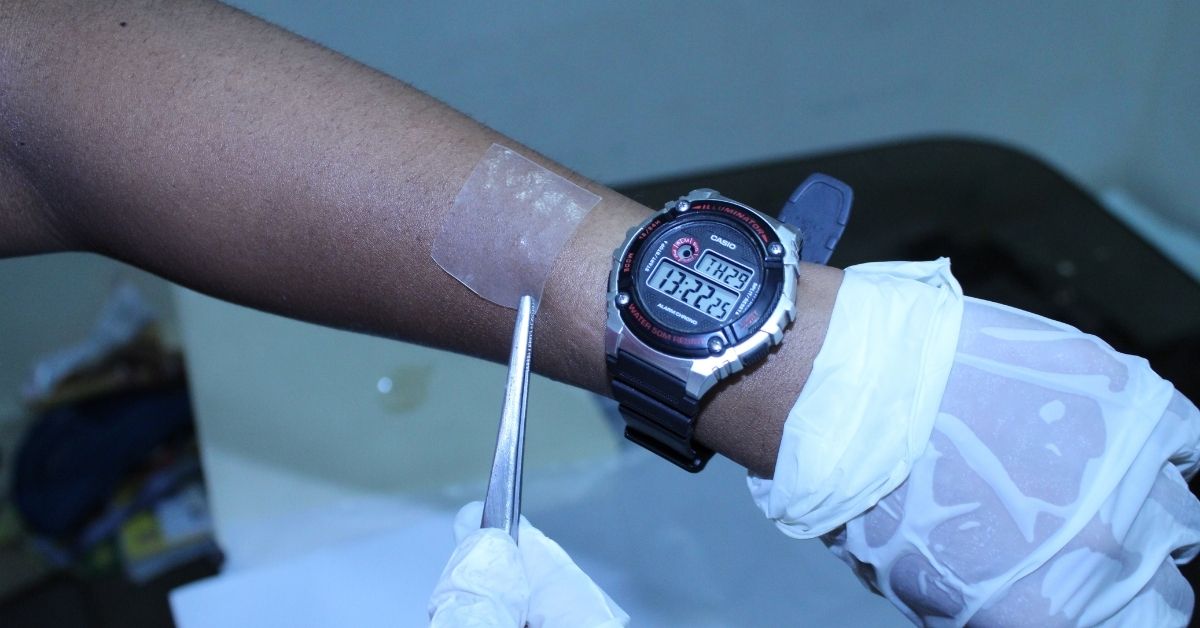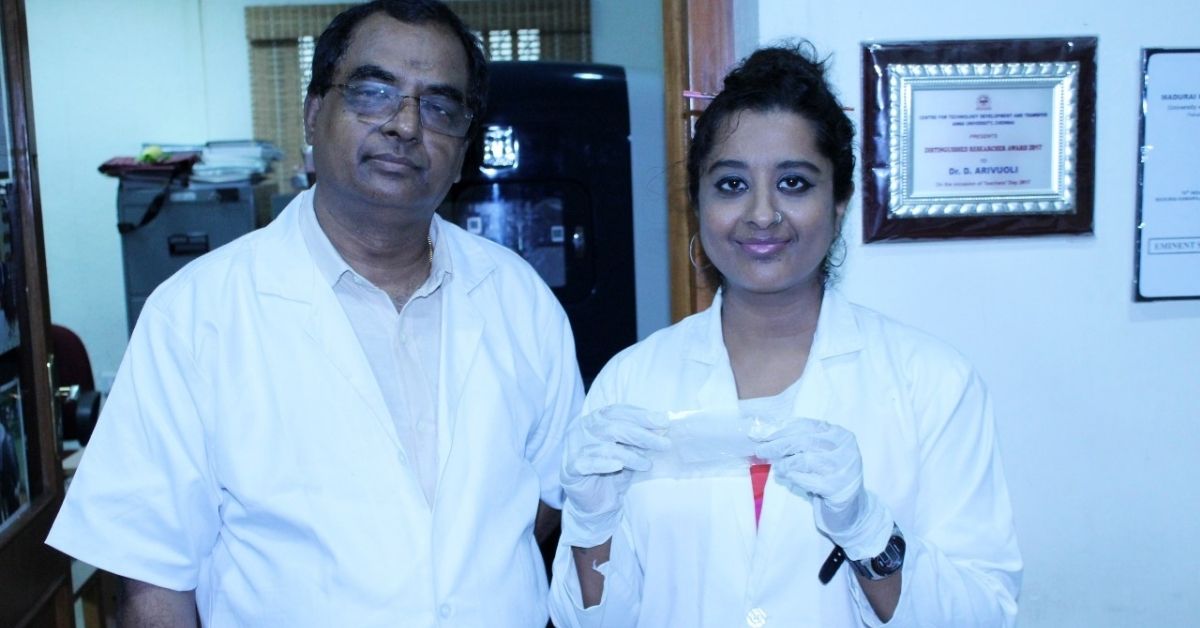Monitor Blood Sugar Through Sweat, Using PhD Scholar’s Biodegradeable Skin Patch
Preethi Ramadoss, a PhD scholar from Anna University in Chennai, has innovated a biodegradable material to detect blood sugar levels in diabetics through body sweat.

In India, 77 million people suffer from diabetes, which is the second-highest in the world. It is recommended that such patients wake up and test their blood sugar levels using a glucometer every day.
The process involves pricking your finger at the tip and placing a droplet of blood on a strip. This is then inserted into the glucometer, which tests the sugar level. While the process is simple, the strip used to collect blood is expensive, made of plastic, and is non-biodegradable.
However, Preethi Ramadoss (34), a PhD scholar from Chennai’s Anna University, has innovated a self-adhesive and biodegradable material to detect blood sugar level from body sweat.

“The glucose detecting patch is made of biodegradable polymer derived from plants and wood. When buried under the earth, it disintegrates within 15 days,” says Preethi in an interview with The Better India.
A natural semiconductor
In 2015, along with her guide Dr D Arivuoli, Preethi was researching for another project regarding biodegradable sanitary pads. She was developing super-absorbents through combinations of several cellulose derivatives. During this time, she created a material that was not suitable for the sanitary pad.
Since Preethi is an eco-conscious person, she decided not to discard the material. “I wanted to study its properties and check if it could be used for any other research work. Initially, I would play around with the material as it was soft and transparent. However, when I put it over my mobile phone’s screen, the touch was activated and I could click on icons. This made me realise that the material was a semiconductor,” says Preethi. She then carried out further experiments to test its conductivity rate.
Once she was convinced that it was a semiconductor, she replicated the material two more times. She also put it through conductivity tests to further prove that the material was a semiconductor.
“As a biologist, I wanted to use this material in a similar field and thought of innovating a biosensor. Biosensors are widely used for taking blood sugar tests. Upon conducting some tests with an electrochemical analyser (lab-level version of a glucometer), I concluded that the material could detect and monitor glucose levels as low as 0.4 millimolar through sweat produced in the body,” says Preethi.
Apart from detecting glucose levels in the sweat, the patch could also detect ethanol levels as low as 0.34 millimolar. This means that this sellotape-like strip can be used to check for alcohol levels in drivers without having to check their breath, which is otherwise an unhygienic method.
Cruelty-free tests
To check the strip for biocompatibility, Preethi cultured human cells in the laboratory. She says that this had to be because a non-invasive biosensor developed in the USA had to be withdrawn after launch as many users complained about skin irritation.
“Usually, researchers use fetal bovine serum extracted from pregnant cows to grow cells and test for biocompatibility. However, using another ethical process, we collected blood serum safely extracted from human beings. This method is also cheaper and animal cruelty-free,” says Preethi, adding that the cells were allowed to grow on the strip and then monitored for any adverse effects.
It was proved that the material is safe when in contact with human skin.
Currently, Preethi hopes to transfer this technology to an organisation that is willing to develop portable electrochemical analysers and distribute the technology on a large scale.
You can reach out to Preethi through her email, [email protected]
If you found our stories insightful, informative, or even just enjoyable, we invite you to consider making a voluntary payment to support the work we do at The Better India. Your contribution helps us continue producing quality content that educates, inspires, and drives positive change.
Choose one of the payment options below for your contribution-
By paying for the stories you value, you directly contribute to sustaining our efforts focused on making a difference in the world. Together, let’s ensure that impactful stories continue to be told and shared, enriching lives and communities alike.
Thank you for your support. Here are some frequently asked questions you might find helpful to know why you are contributing?


This story made me
-
97
-
121
-
89
-
167













